Labor & Economy
Tom Steyer Takes the Gloves Off Against Trump: Part 2
Co-published by Fast Company
In today’s concluding interview installment, environmental activist and progressive philanthropist Tom Steyer discusses, among other subjects, the Keystone pipeline, unions and the promise of green-energy jobs.
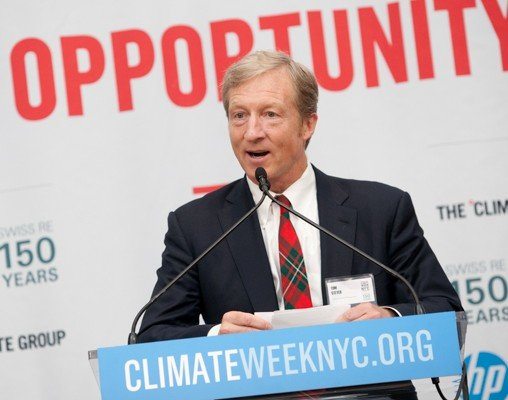
Co-published by Fast Company
Yesterday, in Part One of an interview with Capital & Main, environmental activist and progressive philanthropist Tom Steyer outlined California’s coming showdowns with the Trump administration over the state’s “vision of an inclusive democracy.” In today’s installment Steyer discusses, among other subjects, the Keystone pipeline, unions and the promise of green-energy jobs.
Capital & Main: In the first weeks of the Trump administration there has been a concerted effort to create a wedge between labor and environmentalists by dangling the prospect of oil pipelines and other fossil fuel projects before the unions. How do you prevent that wedge from being driven between those two constituencies?
Tom Steyer: Rebuilding and extending the fossil fuel economy is a horrible mistake on an environmental basis, but it’s also a horrible mistake on an investment basis. Whenever people talk about the Keystone pipeline, they talk about whether we build the pipeline or whether we don’t build the pipeline. That is a completely false frame. [The question really is], do we build good infrastructure or bad infrastructure? We’re either going to rebuild and extend the fossil fuel infrastructure, which has about a 40-year life, or we will build an alternative, clean energy economy. We’ll create two million net more jobs, higher wages, lower costs and better employment.
In 2016 in California, we supported low-income housing and public transportation measures that were worth over half a million jobs. If you look at the Keystone pipeline, they say it’s worth 3,500 jobs for two years. To rebuild the United States, to rebuild the state of California, in a clean way will create many more jobs.
C&M: Why are some trade unions meeting with Trump?
Steyer: There are a lot of pipelines they want to build in infrastructure that are unionized jobs. The trades know that. Those are high-paying jobs, and there are going to be a lot of them in the short run. If we built a different kind of infrastructure — if we rebuilt the electrical grid, if we rebuilt buildings to make them more energy-efficient and put in better HVAC and better windows, if we built huge solar arrays — there are a lot more jobs doing that.
This is about wages and making sure that the jobs are organized. If you look at the monthly labor reports for the U.S., they’re always basically something like 50,000 service jobs created, 50,000 healthcare jobs created, 10,000 manufacturing jobs lost.
That’s a net 90 plus. It’s a pretty good month. Why do we care? Because the manufacturing jobs, you figure, are going to be paying 32 bucks plus benefits, and the healthcare jobs and the service jobs you figure are going to be paying somewhere between 15 and 25. It’s really hard to live on between 15 and 25, so you don’t want to lose well-paid jobs. I get that, and that’s why I say this is really about what you get paid. Why is working in a plant inherently more valuable than working in a hospital?
C&M: That is the question of this generation in terms of the workforce.
Steyer: How do we split up the profits? If you look at what Silicon Valley does, there are companies that make tens of billions of dollars that outsource janitorial and security services so they can pay minimum wage.
The question is, if we’re all working together, what is my responsibility in relationship to you? If people are going to assume that human beings are widgets, there have to be laws to protect human beings. If you look at the most politically vulnerable people, which are farm workers, look and see how they did over time. That’s all you really need to know about labor markets. They didn’t have a right to breaks. They didn’t have a right to overtime. They didn’t have a right to water. They didn’t have a right to shit. Then rules [were set]. God did not come down and say it. Those are just laws that men and women passed.
C&M: Within the solar industry, there are significant numbers of jobs that are not great jobs. How do you get to a place where the green economy that is emerging is actually rebuilding the middle class and not accelerating the decline of the middle class?
Steyer: What’s going on in the solar industry is people are pushing really hard on a cost basis to beat fossil fuels. Renewable costs go down based on innovation, technology and scale. The rule for solar is it goes down 24 percent every time the installed base doubles. We are going to mop the floor with fossil fuels, because human beings are smarter than rocks.
As it crosses over — and it is crossing over in terms of what is the cheapest source of electricity — it is [essential] that the wages of working people in those industries go up, because we cannot have this happen without there being fair wages that people can raise a family on. We can’t have that in this society.
C&M: For many people Elon Musk is the poster child for a visionary approach to building a green economy, and yet little attention has been paid to job standards at Musk’s businesses. How do you get people to think holistically about building a green economy?
Steyer: I totally agree. We obviously see his strategy as not including the interests of the people who work in his companies. We also see him feeling like it’s sensible to be on one of the administration’s task forces. Without having talked to him about either of those things, those are not things that we would do.
I wouldn’t pick on Elon Musk about this. I just think in a broad-based sense, most employers are obsessively concerned with their bottom line. Workers need to have rights. Workers need to be protected by laws. Workers need the right to organize.
C&M: When we interviewed your friend Bill McKibben a couple of months ago, he was close to sounding apocalyptic in his feeling about climate change in the coming era. Do you share McKibben’s fear and sense of dread, or do you feel there is reason for hope?
Steyer: I think about it this way. With all of the evidence on the one side, and the risk being almost unimaginably high, no elected Republican has decided to tell the truth for almost a decade. They have pushed as hard as possible to prevent us from moving forward, in return for money from the fossil fuel companies to fund their party.
Do I believe in the power of the human spirit and American ingenuity and American creativity and business acumen? Probably more than Bill does, because I’ve spent 35 years in the private sector, and I know that under the right circumstances Americans can do things that will shock everyone, including themselves. I believe that in my bones, but I will say this: The willingness of an entire party to put the corporate special interests ahead of the interests of their constituents and every other American and every other person on this globe is really shocking. Until we see them start to go a different way, then Bill’s pessimism is understandable.
Can Americans reach the moon? I believe we’ve proven we can. Can Americans defeat the combined forces of fascism? I believe we have proven we can. Can we do this? Yes, but we are really under the gun. To see what’s going on now, and to see who’s been nominated, and to see their attitude towards truth, and to see that scientists are now going to have to demonstrate and march in the street to stand up for the idea of evidence-based decision-making, is very scary. There’s a reason why Americans are rising up, because that’s something that we really can’t live with.

-

 Latest NewsAugust 11, 2025
Latest NewsAugust 11, 2025Tracking the Chaos of Trump 2.0
-
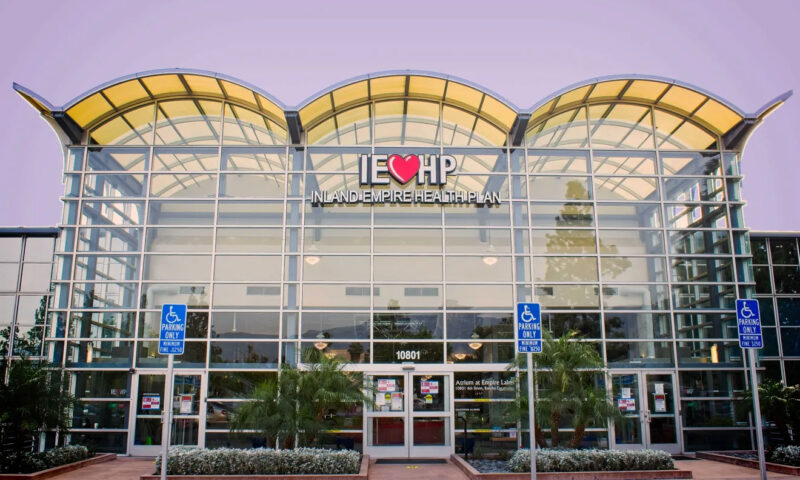
 Column - State of InequalityAugust 7, 2025
Column - State of InequalityAugust 7, 2025Health Care CEO Warns of a System on the Brink
-

 Column - State of InequalityAugust 15, 2025
Column - State of InequalityAugust 15, 2025Measles Is Making a Comeback — and California Isn’t Immune
-

 Worked OverAugust 25, 2025
Worked OverAugust 25, 2025Forest Service Cuts Leave Firefighters Mowing Lawns While Morale Craters
-
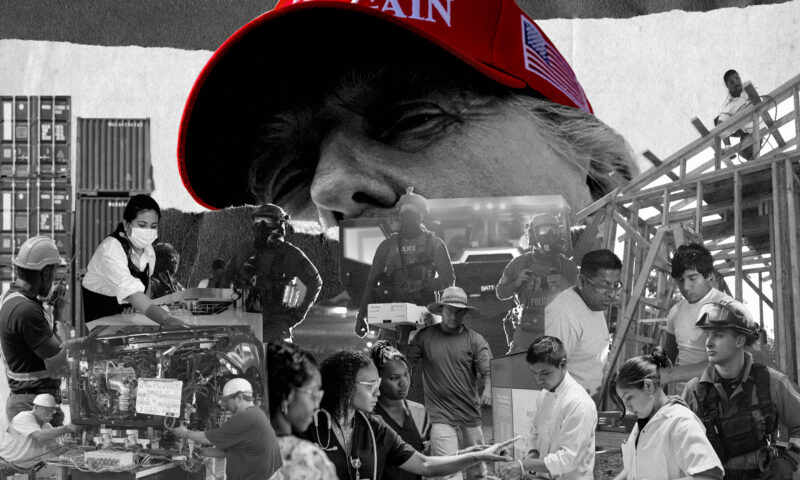
 Worked OverAugust 25, 2025
Worked OverAugust 25, 2025Trump’s Policies Are Adding Up to a Hostile Work Environment
-
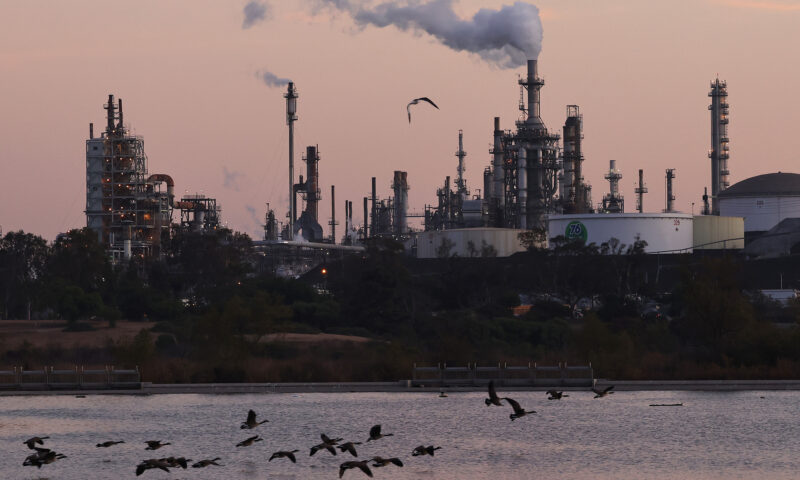
 The SlickAugust 19, 2025
The SlickAugust 19, 2025There’s a ‘Lake’ of Oil Under L.A.’s Soon-to-Close Refinery. Who’s Going to Clean It Up?
-
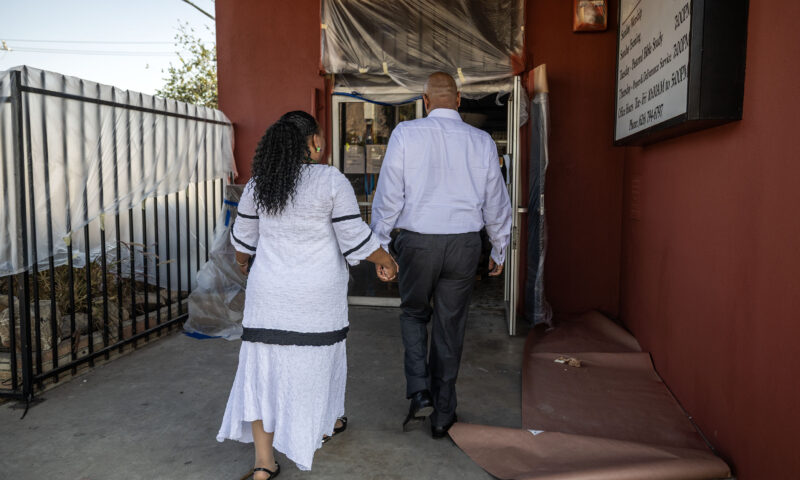
 Latest NewsAugust 8, 2025
Latest NewsAugust 8, 2025When the Flames Came for an Altadena Church
-

 Featured VideoAugust 13, 2025
Featured VideoAugust 13, 2025Federal Officers Continue Arresting Anti-ICE Protesters During 24/7 Demonstrations

